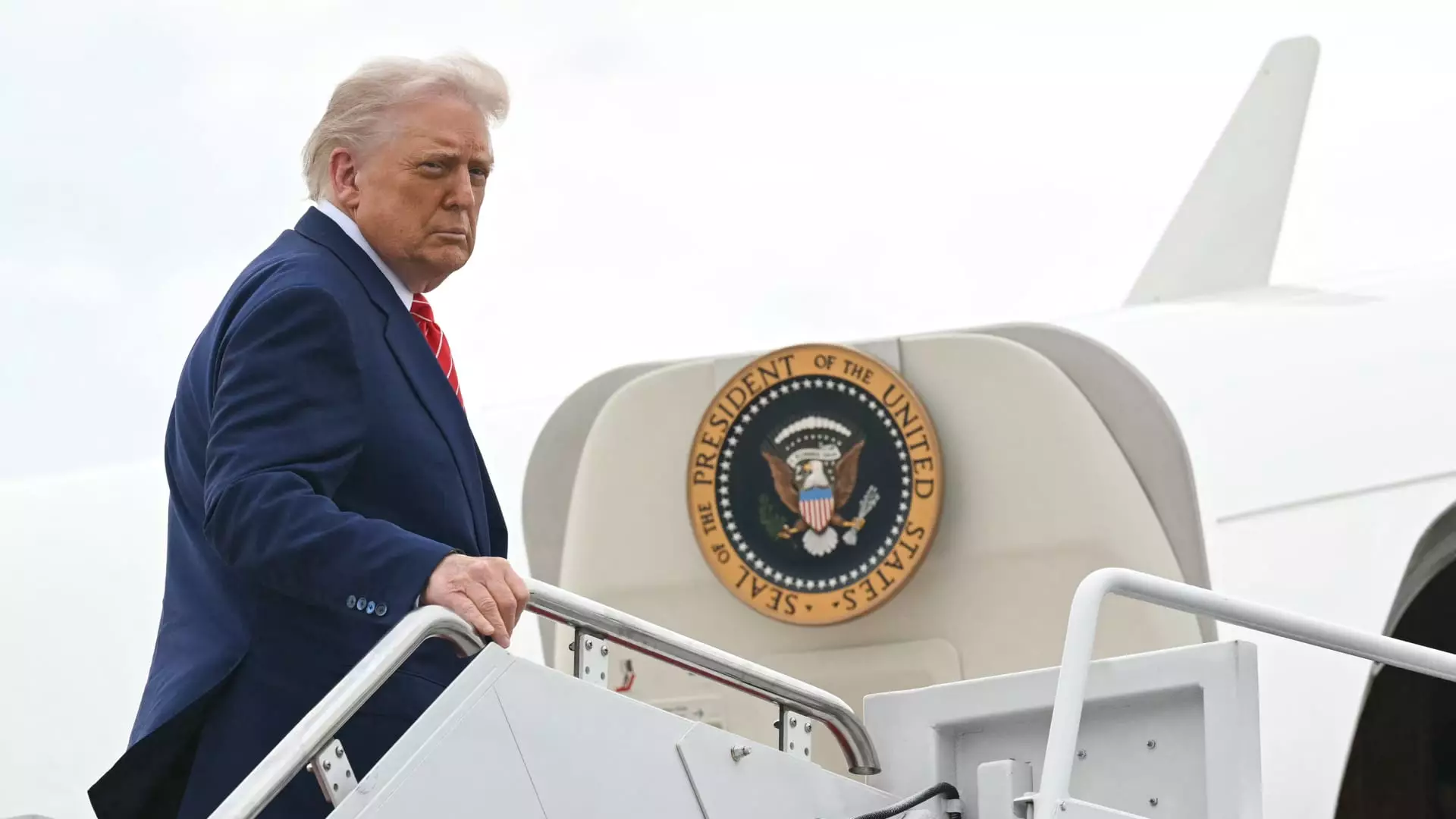The ongoing saga surrounding President Donald Trump’s tariffs is not just a legal battle; it’s a manifestation of deeper ideological conflicts within America’s economic and political landscape. Recently, top economic advisers of the Trump administration recited a familiar mantra: “tariffs are not going away.” This declaration, hurled amidst a maze of court rulings and legal uncertainties, epitomizes the administration’s brazen disregard for due process and rule of law. Whether one views these tariffs as a necessary protective measure or as an existential threat to global trade, one thing is certain: the stakes are monumental, and the potential fallout could wreak havoc on the economy.
Commerce Secretary Howard Lutnick’s bravado on “Fox News Sunday,” following a federal court ruling that deemed Trump’s tariffs as an overreach of his executive authority, suggests a troubling reliance on defiance rather than discourse. While Lutnick insists that tariffs will “stay in place,” his assertions indicate a refusal to acknowledge what many inside and outside the sphere of power recognize as a constitutional crisis thickening on the horizon. The notion that a single individual could circumvent established laws to impose sweeping duties without congressional consent raises alarm bells about accountability in governance.
A Legal Quagmire: A Supreme Court Showdown?
With the matter now in the hands of a federal appeals court, the potential for reaching the U.S. Supreme Court looms large. This legal quagmire introduces a wave of uncertainty—one that could ripple through global markets. Observers could be forgiven for suspecting that Trump’s economic team might prioritize political expediency over sound legal reasoning. The National Economic Council Director, Kevin Hassett, expressed an ironic “confidence” that the conservative Supreme Court would uphold these tariffs. Yet, such overconfidence is disconcerting. What exactly warrants this level of optimism when the stakes are so high?
Hassett’s vague insinuations of “other alternatives” to implement tariff policies hint at a dangerous willingness to exploit whatever legal loophole might present itself. Would a government that claims to uphold law and order so casually scrounge for alternative methods to bypass judicial scrutiny? In many ways, that question strikes at the heart of the administration’s tactics—a dangerous game of chicken with the very fabric of American democracy.
The Global Ramifications of American Isolationism
Trump’s administration justifies these tariffs by framing large trade deficits as a national emergency, yet this logic reveals a counterproductive isolationism that threatens global trade stability. When Trump warns that the courts might undermine his strategy by allowing foreign nations to take advantage of American economic policy, it reflects a distorted worldview that perceives global economies as adversarial, rather than interdependent. It’s worth noting that economic cooperation has historically fostered greater peace and stability across nations, a sentiment seemingly lost in Trump’s confrontational rhetoric.
Rather than repair relationships rooted in mutual economic benefits, the administration’s tariff strategies suggest a path toward trade wars that could escalate beyond economic consequences. History has shown the catastrophic effects of such isolationist policies: not only are relationships strained, but the very fabric of international economic cooperation is threatened. If Trump’s continual combative stance leads to trade tensions, the disadvantaged parties will likely be American consumers, who will bear the brunt of increased prices and scarcity of goods.
A Cultural Reckoning: The Mantra of Making America ‘Great’ Again
The narrative woven into Trump’s tariff fever-dream essentially centers around a misguided nostalgia for a lost America. The slogan “Make America Great Again” operates as both a rallying cry and a shibboleth, appealing to those who feel disenfranchised by globalization. However, the path back to greatness must involve constructive dialogues and not isolationist tendencies that could cripple both American consumers and the nation’s economic soldiers: its workers.
The blind faith in tariffs as a panacea for economic ailments flouts economic theories that encourage cooperation over conflict. Tariffs may seem like an attractive short-term solution for some, but history indicates that they pave the path to long-term economic disaster. The implications extend beyond mere numbers and borders—encouraging a spirit of division rather than unity jeopardizes the very essence of what America can offer to the world stage.
Inevitably, one must wonder: if America cannot navigate this territory with integrity and respect for both its laws and its allies, can it truly claim the mantle of global leadership? This precarious dance with tariffs could easily tip into disaster, and only time will tell how the music resolves.



Leave a Reply